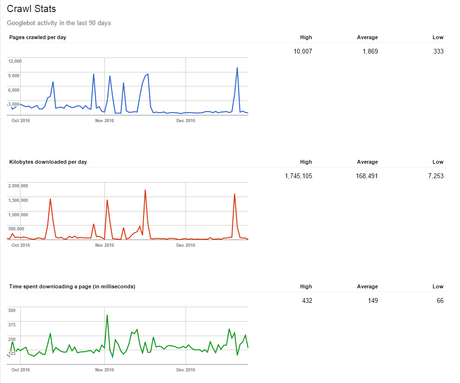Google has been making changes to it's algorithm, so what can you expect for the new year?

Example of Google Indexing
Mobile-First Indexing - This will change the way that your website gets ranked in the search engine results pages (SERPs). There are a few things you need to know about the mobile-first index so that you can optimize your website accordingly and avoid being hit hard by Google search rankings adjustments.
What does Google mobile-first index mean?
For the past month, if you are an SEO enthusiast, you must have heard about the Google changes to their algorithm. Google crawls your site to add pages to its index, using a bot to surf around your website like a real visitor and follows links on your pages for relevance and ranking.
Google has always crawled your site as a desktop user but now, Google plans on crawling your site as a mobile user. This can change a lot of things with your site if your site is not mobile friendly.
I don't have a mobile site?
If you don't have a mobile site or your site is not optimized for mobile, you might experience some setbacks based on the fact that, Google desktop index is completely different from mobile index. You will see that on mobile, some content from your desktop site might no show up.
Things like; Links, Large images and other content that might not be reachable by Google bots. With this simple changes, your site might take a hit in the SERPs.
With this in mind, Google uses numerous ranking signals to determine where your site should land in the search results list. If the Google bot finds that your site is hostile to mobile users or loads for more than 4 seconds, you will see your rankings deep a little.
It's clear, if you want to start SEO today, start focusing on mobile to see any results in SERP. Check to see if your site is mobile friendly or Responsive.
When To Expect mobile-first indexing?
Mobile-first has started rolling out by Google. But it will take several months before full implementation is adopted. As usual, Google doesn't specify the precise date on when it will be completed as Google continues to build and test the mobile-first coding.
Why the change to mobile-first index?
There are millions of smartphones compared to desktop computers. Google wants to be everywhere and have you search on your smartphones more often than you will on a desktop. Statistics in the past 5 years, show that smartphone mobile users are more than desktop users.
Expandable website content?
Content that is placed under a "read more link" were not getting indexed by Google. With this mobile-first index, it will take another phase.
According to Google, with mobile first; content hidden in tabs and accordions will have the same weight as content that’s plainly displayed on the page. Google considers that expandable content makes much more sense on a mobile platform, because of limited screen space. That’s why Google won’t penalize webmasters who take advantage of those design features on their websites.
Will mobile-first indexing change rankings significantly?
As is usually the case, though, Google - said that mobile-first indexing shouldn’t result in a significant change in your websites rankings but too early in the game to know of any significant changes and if your rankings will be affected at all. Your site will still rank for it's selected keywords on desktop, but might be shabby with mobile.
Conclusion
It's better to be save than sorry in this instance. Start optimizing your website to be mobile responsive before the new years, so you can be ready to have mobile traffic to your site. Over time, you'll thank yourself for making these changes to your site on time.
If you need help, don't hesitate to be in touch!
Divine Tumenta is an entrepreneur and professional digital marketing expert based in Los Angeles. He has worked in digital marketing for more than 8 years. He is currently founder and CEO of backlinkfy.com and a go to consultant for startups and small businesses in the USA.

